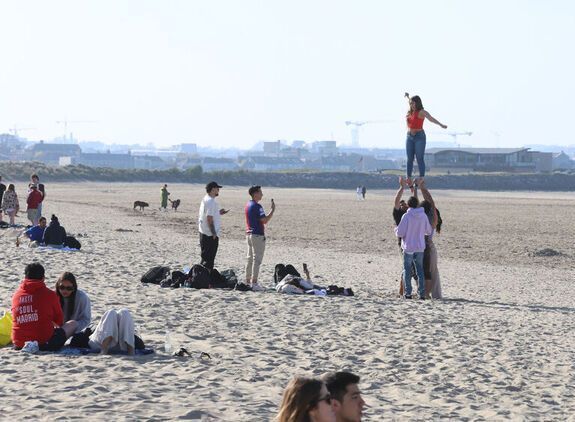By Susan Falvella Garraty
[caption id="attachment_63663" align="aligncenter" width="300" caption="IFI chairman Dennis Rooney"]
Hopes were dashed late last week when the House and Senate voted to kill all of the U.S. contribution to the International Fund for Ireland for the rest of 2011.
The House Republican leadership led the charge to get rid of the $17.5 million the IFI was to receive from Congress. Supporters of the IFI thought they had persuaded several U.S. senators to reinsert some funding into the short term Continuing Resolution. Republicans prevailed however and the IFI's budgetary commitment from the U.S. was shut down.
It is very difficult to restore funding for programs once Congress purposely zeroes out a recipient.
The IFI joined the ranks of a host of other discretionary funds including the Clean Technology Fund, the Strategic Climate Fund, and the Asian Development Fund that Congress consigned to the de-funded column.
Some Democratic senators are banding together to try and restore funding for several of the zeroed out recipients. Senator Daniel Inouye (D-Hawaii) is the chairman of the Senate Appropriations Committee and is trying to formulate the long term spending cuts for the next Continuing Resolution necessary for the U.S. to keep the federal government operating.
Reports nevertheless indicate that it does not look good for restoration of the IFI funding for this year.
At this time, the Republican House and Senate Democratic leadership remain far apart on just what cuts will be made permanent, both in the next CR and the formal Budget for 2012.
Supporters of the IFI say they have some support from several senators to restore a small amount of funding, perhaps as little as $2.5 million, this as a part of the State Department's budget request for 2012.
"If they've spent all their funds already dispersed from U.S. funding, than they are unlikely to receive anything more under the circumstances," said a Capitol Hill staff member familiar with the budget process and who requested anonymity.
As recently as 18 months ago the Irish government conceded that there was no longer a necessity for the U.S. to contribute money to the fund, set up in 1986 to encourage cross community partnership in the North of Ireland and border counties, this while violence and political uncertainty lingered. The message from Dublin was reversed recently against the backdrop of the sharp economic downturn.
The chairman of the IFI, Denis Rooney, said in a telephone interview from his office in Belfast that there are not any alternatives in place to keep the IFI going without money from the United States. The mission of the IFI was to provide money for programs that support the peace process, bring communities together, and is acceptable to both communities, he said.
"Being realistic, the heavy lifting, the major support for the fund is first from the United States and then the European Union and they are significantly more than any of the other donors, much as we appreciate their support, but really the fund is defined as actively supported by the U.S. and the EU."
Rooney will be meeting for the first time next week with the recently appointed U.S. observer to the fund, Daniel Hynes, a long time Chicago associate of President Obama.
Would the fund be able to survive without U.S. contributions in 2012 if the State Department manages to put aside $2.5 million dollars towards the fund as has been proposed by some on Capitol Hill?
"It is difficult, and we'll have to accept whatever situation arises, but certainly that would be far from ideal for us," said Rooney.









